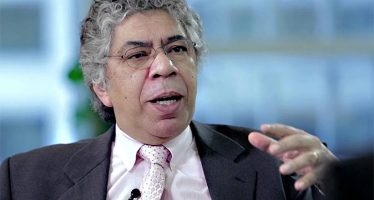The Billionaire Hand-Me-Downs: What the Great Wealth Transfer Means for the World
As the wealthiest and oldest prepare to pass on their fortunes, the implications for the global economy are profound. Will their heirs preserve, squander, or redefine these immense legacies?
The Wealth Transfer in Context
Two key trends define today’s global wealth landscape. Baby boomers hold a historically unprecedented share of wealth, much of which is poised to pass to Generation X and millennials. At the same time, the world’s richest 1% are wealthier than ever before.

Recent reports reveal that Elon Musk, now worth over $400bn, is the wealthiest individual in recorded history. These realities create a global economy heavily concentrated at the top: both in terms of age and financial resources.
As baby boomers and ultra-high-net-worth individuals age, the world faces an unprecedented wealth transfer. This phenomenon raises vital questions about the future of economic power, innovation, and societal equity.
The Rise of Billionaire Wealth
The billionaire class continues to expand. According to Forbes, there were 2,781 billionaires at the start of 2024, collectively holding $14.2tn in wealth — an increase of $2tn from the previous year.
Interestingly, many billionaires belong to older generations. A 2023 study revealed the median billionaire age to be 67, while younger billionaires are largely heirs of fortunes. The concentration of inherited wealth has profound implications for global economic mobility and societal equity.
A Family Affair
Billionaires often pass down more than financial assets; they transfer control of powerful companies. These transitions can lead to publicised disputes and organisational challenges:
- Rupert Murdoch: At 93, Murdoch’s attempt to transfer his media empire to son Lachlan met resistance from other heirs, echoing the familial power struggles seen in TV drama Succession.
- Bernard Arnault: The 75-year-old CEO of LVMH strategically placed his five children in senior roles to prepare them for leadership.
- George Soros: Soros, 94, handed control of his $25bn philanthropic empire to his son Alexander, prioritising legacy management over familial discord.
- Warren Buffett: Known for eschewing dynastic wealth, Buffett has donated billions to philanthropy, questioning the long-term stewardship of immense fortunes.
These high-profile cases highlight the complexities of billionaire succession, from family dynamics to governance challenges.
What Happens Next?
Critics warn that inherited wealth could exacerbate inequality and reduce innovation. Yet, others argue that inheritors can still drive progress. According to Neil Cummins of LSE, “New wealth is created all the time, even by those who inherit vast fortunes.”
Elon Musk’s trajectory offers an illustrative, albeit controversial, example. Musk received financial backing from his father for his first venture, Zip2, but leveraged that capital into a $400bn empire. The question remains whether such cases are anomalies or indicative of a broader pattern.
For Musk, with 11 children, how his fortune is distributed will shape his legacy and the future of his enterprises. His case exemplifies the potential and pitfalls of generational wealth transfer.
A Return to Historical Norms?
While today’s wealth inequality seems unprecedented, some economists suggest it reflects historical trends. Neil Cummins explains that inherited wealth often grows in economies with slower growth and lower taxation.
Mid-20th-century policies, marked by progressive taxation, were exceptions. At their peak, top U.S. tax rates reached 94%, limiting wealth concentration. Today, economic growth patterns and reduced taxation have allowed wealth to accumulate unchecked.
Final Thoughts: A New Era or Business as Usual?
The Great Wealth Transfer could reinforce existing inequalities or redefine global power structures. While some billionaires like Arnault aim to preserve dynasties, others like Buffett advocate redistribution. Ultimately, how this wealth is managed will influence economies, innovation, and equity for generations to come.
As societies navigate this seismic shift, one thing is clear: the impact of today’s decisions will reverberate for decades.
FAQs
What is the Great Wealth Transfer?
The Great Wealth Transfer refers to the unprecedented shift of assets from older generations, primarily baby boomers, to younger heirs, such as Generation X and millennials. This transfer involves trillions of dollars in financial and non-financial assets.
How will inherited wealth affect the global economy?
Inherited wealth could exacerbate inequality by consolidating power among a small group. However, it also has the potential to drive progress if managed effectively, as inheritors could invest in innovation and philanthropy.
What challenges do billionaires face in succession planning?
Billionaires must address family dynamics, governance issues, and public scrutiny when transferring wealth and leadership. High-profile examples include Rupert Murdoch and Bernard Arnault, whose succession plans have sparked both conflict and strategic realignments.
What role does taxation play in wealth concentration?
Historically, progressive taxation limited wealth accumulation. Today’s lower tax rates have contributed to the rapid growth of billionaires’ fortunes, making wealth transfers more significant than ever.
How can societies address the challenges of wealth inequality?
Societies can implement progressive taxation, promote philanthropy, and encourage policies that foster economic mobility. Transparent governance and responsible wealth management are also key to mitigating inequality.
You may have an interest in also reading…
New UN Report Calls for Major Changes in Global Economic Governance, Management
Six years after the start of the global economic and financial crisis, the world economy has still not found a
EDFI: Africa and Energy Access – Financing Impact
Energy is arguably one of the major challenges the world faces today. For those living in extreme poverty, the lack
Otaviano Canuto, IMF: What Happened to World Trade?
World trade suffered another disappointing year in 2015, experiencing a contraction in merchandise trade volumes during the first half and

















































































